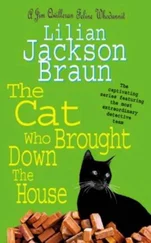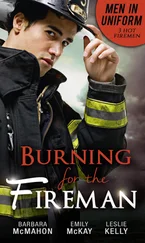Poppy scanned the offerings. It was impossible not to smile, slightly, involuntarily, at the sight of so much bounty, and beauty, the starched white napkins, the glistening plates, the food like a tapestry embroidered on the tablecloth come to life, animated and in 3-D. Poppy took all this in and served herself, answered perfunctory questions about her day, tasted the sweet and savory flavors expertly mingled, but the communal experience made it clearer and clearer that her feelings for this collection of people, compared with the feelings that had been aroused by Ian, were not exactly love. Perhaps for Felix what she felt was love, a gratitude and respect that grew into love. What she felt for Steve was fierce, foreboding, a passionate yearning for love. And what she felt for all of them was kinship, closeness, warmth, even when they were their most selfish, cruel, and cold. Everything about them had formed who she was, and she appreciated it. But her early struggles and losses, her particular mental machinery, these factors prevented her from feeling connected to these people in the deepest part of her heart. Everything about them demanded her attention, defined her existence, and more than anything she pitied them their paltry happiness, their chronic unhappiness, but all the force of her unsatisfied need for love, all her longing, had gone to Ian. What she had felt for Ian was what she now considered to be love. It was impossible to change that.
These thoughts were not conscious for Poppy. They rumbled far beneath the surface of her inner dialogue. But passing the shaved-fennel-and-artichoke side dish to Alix, she caught sight of Alix’s watch, a large man’s Omega, gold with a brown leather band, that she knew had been Ian’s grandfather’s and which had been given on permanent loan to Alix for one of her birthdays. The white numberless face marked with thin gold lines reminded Poppy instantly of Ian. Blank yet meaningful, unpretentious, solid, true. Suddenly she remembered who had been the cause of her current suffering, the instrument of her grief. She had not thought of him, consciously, specifically, for days. But now, seeing that timeless face, so familiar and so close to her, she experienced an unexpected wave of love for him.
But where was he? Why had he left her? How could he have done such a thing? she thought, reproachfully, as if their parting had taken place only moments and not months ago. She wanted to ask Alix about him, and yet she knew that there was no possible response that could please her. And Alix wouldn’t know to soften any blow because Poppy had concealed everything from her. Perhaps Ian had told Alix, but Poppy didn’t think so; he had made such a point of keeping their relationship a secret. She imagined Alix leaning over to her and whispering that Ian missed her desperately and wanted to see her. But then the real Alix pursed her lips and looked down at her forkful of wilted greens, unimpressed. Roman was explaining something about Minecraft to Miranda, who listened semipolitely. Jonathan was trying to get Steve to discuss a transaction while Steve ate silently and breathed with increasing deliberateness. He seemed to wince at Jonathan’s business suggestions, lowering his lids patronizingly, impatiently, but in such a way as to defy any accusation that he was not being entirely open to the ideas. Suddenly a painful thought occurred to Poppy: What if Ian had never loved her?
And, recounting events in her mind, she felt that there existed confirmation of this sickening thought in her every memory: in his hidden courtship, his devotion to his work, and even in his decision to cut her off completely, as if to avoid the very idea of her.
He should have never told me that he loved me, she thought. If I’d only known that I hadn’t mattered to him I wouldn’t be in so much agony now.
It had never crossed her mind before that his love for her had been a lie and now convincing herself of his indifference she came close to despair. Her struggle had seemed miserable up to this moment. Now it was agitating, excruciating, terrifying. She ate her soufflé with an aggressive cheerfulness, practically flirting with everyone at the table at one point or another. She waved the sparkling dessert spoon in the air as she spoke. She giggled desperately, almost defiantly, at Roman’s only mildly humorous remarks. She spilled cappuccino on the table. She understood nothing, felt nothing, loved nothing one moment, and then found herself wanting to provoke a scene. Before she could act on the unfortunate impulse, dinner had ended. Back in her room she located some texts that he had sent her long ago. Reading them over and over and over, she calmed down.
—
She’s still part of the family; it’s where her body lives. Its brutality, its coldness, feel essential to her. But in her heart she lives someplace else, someplace with him, someplace bordering on the unreal it seems so warm. Tropical in its lushness, enveloping. The slick and lanky palm leaves dangle down. The mad sun, feverish, melts against the water.
—
April 1 and the fools rushed into one another’s arms, squealing, some teary, sharing the news of where they would be going to college. Poppy watched and complimented and commiserated with people she had known since kindergarten, kids whose faces she remembered from when they were still unformed, shining, sweet and silly monkeys’ heads, children with whom she had refined the characteristics of curiosity and social aptitude that had enabled her to attend this school in the first place, boys who’d pressed against her at dances, girls who had viciously excluded her from parties and gleefully posted the pictures on Instagram, young adults who had debated mock congressional bills with her and who had explained over lunch in the cafeteria or while watching R-rated movies in their families’ media rooms more than she wanted to know about music and television and Internet porn. These were her peers and she felt a compatriot’s closeness to them, to their dreams and destinies, but she could not understand their deep, unquestioning, and devout desire to go to college. And they could not understand her refusal. Wasn’t this what she had worked for? Hadn’t she been a top student, give or take a few scandalous missteps? Didn’t she want to be set free? To mingle and daydream in echoing lecture halls? To attend off-campus parties? To speculate in the wee hours of the morning about what kind of work would possibly be left for her generation when it was belched out into the world, and to share the confusions of an uncertain future from the comfort of a wood-paneled, squishy-couched, leafy-viewed dorm room?
Poppy could see their point. She also recognized that some of them would continue their studies in a serious, genuinely academic, or even scholarly way and would go on to truly contribute to society, but for the most part she felt like a lapsed member of some highly ritualized sect, a sinner in the face of tithes or punishing ordeals or the very idea of the elect. She could no longer get on board, play the game, believe in the system, even if there was no other system. This put her in the awkward position of having to feign excitement or disappointment as her classmates told her where they would, or would not, be undertaking their higher education, as if she were a Native American listening politely to a Puritan explain a recent experience of awakening. Her position was also awkward because she had come to school a little drunk. And with several pills in her bloodstream. And with the feeling that today might be the day when she started mixing drinks in the Seniors’ Lounge or ran down the sixth-floor hallway naked or smeared herself with paint in the art studio and then swung from the basketball hoop in the gym. It was going to be a long day.
—
During study hall a big group of seniors decided to go out for a celebration, but Poppy spent the time in the library. She looked wretchedly elegant with her thin wrists sticking out of her long sweater sleeves and her now-cheekbone-length bangs fringing her big eyes. One other person, a junior, was reading in the library too, a boy who’d come in tenth grade and whom she’d never gotten to know, a cute, shy, stoner type who wore hoodies and seemed like he might be interesting if he weren’t younger than she was and so weirdly quiet. He raised his head slightly from his book and spoke without looking directly at Poppy. Why aren’t you out with the rest of them? he said.
Читать дальше












